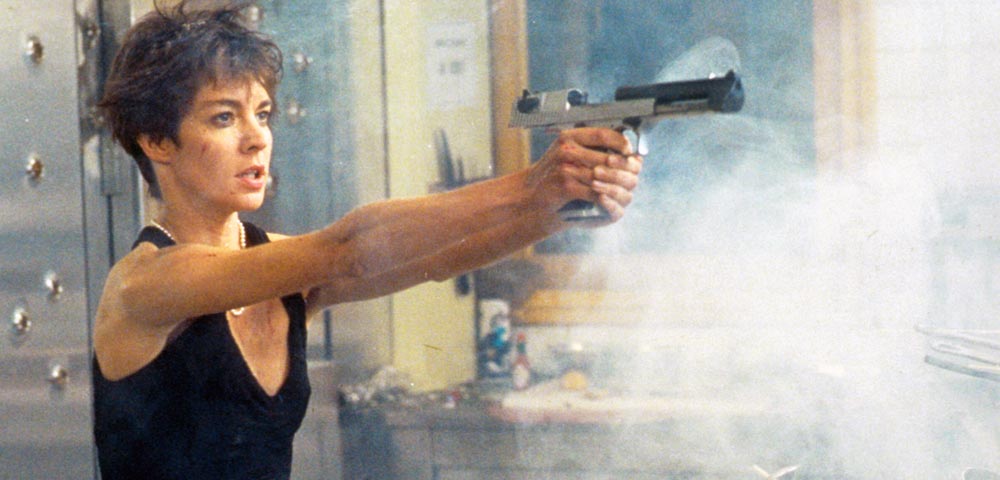★★★★½

 Luc Besson’s original contains all the necessary elements which would become standard for the field. A criminal is “killed” by the government, only to be resurrected into a new life as an assassin for the authorities. Initially resistant, she eventually embraces her new life, but a romance reminds her of the world she left behind, and becomes a potentially lethal threat to her existence when it starts to interfere with her professional capabilities.
Luc Besson’s original contains all the necessary elements which would become standard for the field. A criminal is “killed” by the government, only to be resurrected into a new life as an assassin for the authorities. Initially resistant, she eventually embraces her new life, but a romance reminds her of the world she left behind, and becomes a potentially lethal threat to her existence when it starts to interfere with her professional capabilities.
This kind of thing has been done so often since, in one form or another, it’s hard to remember how fresh and invigorating it seemed at the time. Even so, not many movies since have had the courage to make their heroine a junkie cop-killer, and it says a lot for both Parrilaud and Besson that Nikita still comes over as sympathetic. She’s a victim of circumstance, her only use to the state as a trained killer, but the film strongly makes the case that she remains a person, with feelings and emotions like the rest of us.
It is these that eventually prove her downfall, when she encounters Victor the cleaner (Jean Reno), and realises that he is what she will eventually become. Seeing him kill people, as easily as we would swat a fly, it’s clear that, no matter how lengthy her indoctrination and training, she still kept her essential humanity and there is a line she won’t cross. Mind you, the original ending was rather more explosive, with Nikita turning her skills to exact revenge on her creators. Whether through a lack of resources, or a desire for a less confrontational finale, this was dropped in favour of a softer, more ambivalent ending which was also copied by subsequent versions.
Though this might have been nice from an action heroine point of view – as is, you wonder why they bothered with all that specialized training – I’m more than prepared to settle for the actual version of the film. The performances are all sound, Parillaud’s in particular (her “singing” voice is a stroke of genius!), and Besson’s style shines through a bluish haze of raindrops, wet streets and car headlights. Avoid, at all costs, the English dubbed version: that’s what Point of No Return is for. Even if you can’t or won’t read subtitles, you will have little difficulty in understanding the film, such is the raw emotion the actors put into their portrayals.
At two hours long, there is perhaps a slight deficit of actual action, not least in comparison to the hyperkinetic pace of contemporary genre entries. Some facets of the film, such as the romance, seem overplayed, albeit largely because the actors get the significance over so well. However, it’s not as if you’ll find yourself looking at your watch, and – if you’ll pardon the pun – the execution here is almost flawless.
Dir: Luc Besson
Star: Anne Parillaud, Tcheky Karyo, Jean-Hugues Anglade, Jeanne Moreau




